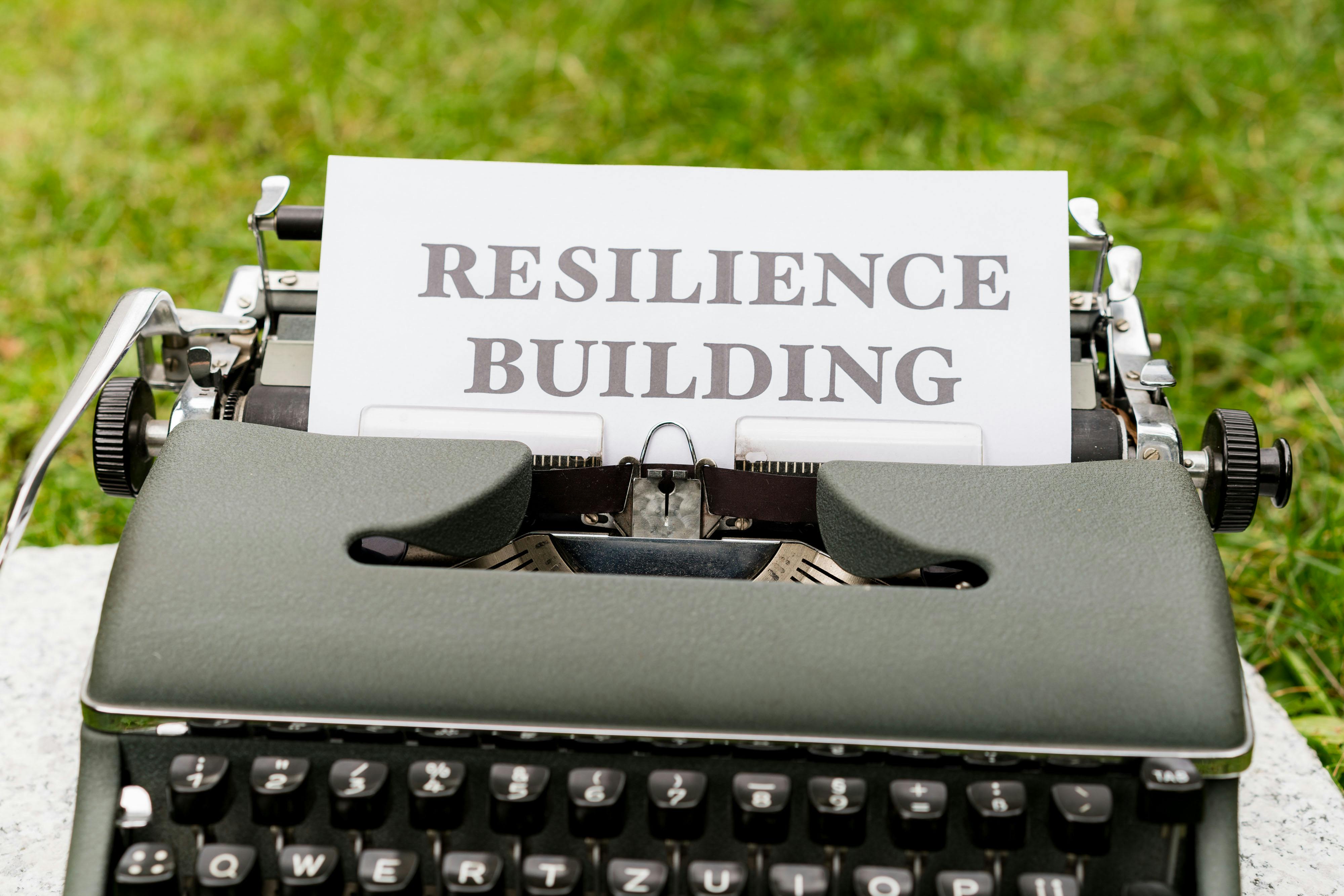Turning Professional Setbacks into Career Growth Opportunities: How to Overcome Career Obstacles and Thrive
Oct 02, 2024
Have you ever felt like your career has hit a roadblock? Professional setbacks can be disheartening whether it’s a string of job rejections, struggling to establish credentials in a new country, or attempting to pivot to a different industry. But what if these obstacles could become the foundation of your success?
This post will explore how to transform career challenges into stepping stones for growth. You’ll discover strategies to reframe setbacks, leverage rejections for improvement, and build a resilient career plan that thrives on change. We’ll also delve into the power of networking and mentorship in overcoming professional isolation. By the end, you’ll be equipped with actionable tools not just to survive career obstacles, but to use them as catalysts for long-term success.

1. Redefining Setbacks: Why Challenges Are Part of Career Growth
1.1 Setbacks as Stepping Stones
If you’re feeling stuck after a series of job rejections or career setbacks, you’re not alone. I’ve been there too—questioning my value, feeling the sting of rejection, and wondering if my hard work would ever pay off. Here’s the truth: setbacks aren’t a sign that you’re failing—they’re a natural, and often necessary, part of career growth.
Each rejection isn’t closing a door forever; instead, it can guide you towards new opportunities you might not have considered. Think of setbacks as stepping stones rather than roadblocks. Career progression isn’t linear—sometimes you need to take a step back to leap forward.
Career setbacks are universal—no professional journey is without obstacles. However, these challenges often create opportunities for personal reflection and skill development.
"Success is not final, failure is not fatal: it is the courage to continue that counts." – Winston Churchill
Take Howard Schultz, former CEO of Starbucks, who was rejected by over 200 investors before finding success. His story exemplifies how perseverance through setbacks can lead to monumental achievements. As professional migrants, our journeys may not involve coffee chains, but they share a universal truth: persistence and adaptability will eventually create growth, even if it feels slow at first.
1.2 The Power of Perspective
One of the most important lessons I’ve learned is that how we perceive setbacks determines how we overcome them. Reframing rejection as feedback, rather than failure, was transformative in my journey. This is particularly important for career migrants. Sometimes, it feels like the barriers are higher or more unfair, but with the right mindset, each challenge is a chance to build a more resilient career.
Let’s look at the bigger picture: as a migrant professional, you’ve already demonstrated immense courage and adaptability. These aren’t just soft skills; they are critical assets that employers in a globalised world highly value.
Growth Mindset Tip: Instead of asking, “Why didn’t they hire me?” start asking, “What can I learn from this experience to position myself for the next opportunity?”
By shifting your perspective, you move from frustration to curiosity—and that mindset shift can be a game-changer in how you navigate the job market.

2. The Opportunity Behind Job Rejections
2.1 Handling Rejections with Resilience
I won’t sugarcoat it—job rejections sting, especially when you’ve invested years of hard work, extra degrees, and countless hours proving yourself. For many of us, it feels like we’re constantly pushing to be valued or recognised in workplaces that may not see our full potential.
Rejection, though painful, is also an opportunity to re-evaluate and adjust your approach. The key is not to internalise it. Each “no” isn’t a reflection of your worth; it’s a chance to pause, reflect, and refine.
Practical Advice:
- When rejection hits, give yourself permission to feel disappointed, but don’t linger there. Acknowledge the frustration, then shift your focus to what you can control—whether it’s upskilling, expanding your network, or simply adjusting your approach.
- Take advantage of any feedback you receive. If possible, ask hiring managers for specific insights about why you weren’t selected. Use this as constructive input for your next steps. However, bear in mind that sometimes the reasons for rejection are not personal or clear-cut.
Personal Story: I remember being rejected from a role I felt was perfect for me. Instead of dwelling on it, I connected with one of the interviewers on LinkedIn and asked for feedback. That conversation didn’t just give me valuable insights—it opened doors for future opportunities. Six months later, I landed an even better position at a different company, where I learnt invaluable skills.
2.2 Building on Rejections: The Benefits of Feedback Loops
There’s a concept I like to call the feedback loop of growth. Each rejection, when approached with the right mindset, offers clues on how to improve—not only in terms of skills but also in how you market yourself.
Statistics Worth Noting: According to a study by Glassdoor, the average job offer conversion rate is only about 4-6%. This means that out of every 100 job applications, only a few result in offers. The odds are tough, but these numbers also highlight the importance of viewing each rejection as part of the long-term process.
Action Steps:
1. Keep a log of job rejections, noting any feedback you receive.
2. Look for patterns in the feedback to inform your next move.
3. Stay proactive: enrol in online courses, attend webinars, and keep learning.

3. Pivoting to New Industries: Embracing Change as a Growth Opportunity
3.1 Identifying Transferable Skills
Pivoting industries can feel daunting, but if you’ve moved countries, you’ve already pivoted in significant ways. A career shift feels less intimidating when you recognise that your transferable skills—problem-solving, communication, leadership, adaptability—are valuable in virtually any industry.
A Global Perspective: As a career migrant, you bring something incredibly unique to the table: a global mindset. Your ability to navigate different cultures and work environments is a major asset, especially in today’s interconnected world. Companies are seeking employees who can think globally and work cross-culturally. A survey by Harvard Business Review found that companies with more globally-minded employees were 70% more likely to capture new markets.
Practical Exercise:
- List the skills you've developed throughout your career, then match those skills with potential new industries. For example:
- Project management across regions → valuable in tech, finance, or consulting
- Cross-cultural communication → essential in education, international business, or diplomacy
- Adaptability → crucial in fast-paced industries like start-ups or media
3.2 Upskilling and Reskilling for Industry Transitions
One of the best pieces of advice I can offer is to never stop learning. I’ve completed multiple degrees and certifications—not because I had to, but because I needed to prove to myself (and sometimes to employers) that I could adapt and stay relevant. But here’s what I’ve learnt: the value of education isn’t just about proving your worth; it’s about equipping yourself with the skills needed to thrive in an ever-changing job market.
Statistics to Consider: According to a LinkedIn Workplace Learning Report, 94% of employees would stay longer at a company that invests in their learning and development. Upskilling helps you transition industries and future-proofs your career by keeping you adaptable in a fast-evolving global market.
Action Steps:
- Invest time in professional development to gain new qualifications in your target industry.
- Set realistic goals—completing one new course or certification every few months.
- Don’t underestimate the power of soft skills. Cross-cultural communication, emotional intelligence, and leadership are critical as more companies embrace global remote work environments.

4. Overcoming Professional Isolation Through Networking and Community
4.1 The Importance of Building a Supportive Network
As a professional migrant, one of the toughest challenges is often professional isolation. Moving to a new country or industry can feel lonely, especially when your support network is far away. But remember, you’re not the only one facing these challenges—millions of professionals are navigating similar paths.
Building a network—both locally and online—can be a game-changer for your career.
Practical Tips:
- Join LinkedIn groups or professional organisations in your field. Participate in conversations, share insights, and build relationships. Networking doesn’t have to feel transactional—it can be about sharing experiences and supporting one another.
- Attend virtual conferences or webinars to keep up with industry trends and connect with like-minded professionals. Networking is about quality, not quantity. Even one meaningful connection can lead to your next opportunity.
4.2 Mentorship as a Catalyst for Career Growth
One of the most powerful ways to overcome both professional isolation and the challenges of career setbacks is by finding a mentor. A mentor provides more than just career advice—they offer a roadmap, emotional support, and the benefit of their experience in navigating career obstacles, especially in unfamiliar industries.
As a career migrant, you may feel like you're constantly having to prove yourself, and sometimes it feels like you’re doing it alone. But the right mentor can light the way forward, giving you insight into the industries you want to break into and introducing you to networks you might not have access to on your own.
Why Mentorship Matters: A study from the Association for Talent Development (ATD) found that 75% of executives credit their success, at least in part, to mentorship. Mentors don’t just help you grow your skills—they provide insider knowledge that might take you years to learn on your own.
How to Find a Mentor:
- Use LinkedIn to reach out to professionals you admire. Don’t be afraid to send a thoughtful message explaining your goals and asking if they’d be open to a mentoring relationship.
- Join industry associations and local professional groups that offer formal mentorship programmes.
Example: A close colleague of mine, also a professional migrant, found her mentor through a networking event at a professional association. At the time, she was pivoting from academia to corporate marketing and was struggling to find her footing. Her mentor, an experienced marketing executive, helped her understand how to leverage her academic background into a competitive advantage. A year later, she landed a leadership role in a major company—one she credits to her mentor's guidance.
Mentorship isn’t just about learning; it’s about having someone in your corner who believes in you and your potential, especially when you face setbacks.

5. Developing a Resilient Career Plan: Turning Obstacles into Growth Strategies
5.1 Creating a Career Roadmap with Flexibility
When you face career setbacks, it’s tempting to feel like your plans have derailed entirely. But the reality is, that every setback is an opportunity to reassess and refine your goals. A resilient career plan isn’t rigid—it’s flexible, adaptable, and built to evolve as you do.
Why Flexibility Matters: For many of us, especially as migrants, career progression doesn’t follow a traditional path. We may need to take sideways steps, change industries, or even take roles that feel like steps backward in order to move forward. But remember, success isn’t a straight line—it’s a winding road filled with learning experiences. Embrace the zigzags, because each one adds something to your growth.
Practical Steps to Build a Resilient Career Plan:
- Set Short-Term and Long-Term Goals: Break your career ambitions into smaller, manageable milestones.
- Leave Room for Adjustments: Understand that your goals may shift over time—and that’s okay. Build a roadmap that allows for adjustments based on new information or opportunities.
- Focus on Growth, Not Perfection: The pressure to prove yourself in a new job market or industry can make every setback feel like a personal failure. But instead of chasing perfection, focus on continuous growth. Keep asking yourself, “How am I getting better?” rather than “Am I good enough?”
Example: I once took a position that felt like a step backward—it wasn’t the leadership role I had been striving for, and I questioned whether I was moving in the right direction. But that experience turned out to be invaluable. I learnt new skills, built stronger relationships, and eventually used that position as a springboard for an even better role down the line.
5.2 Celebrating Small Wins Along the Way
While overcoming career setbacks, it’s easy to lose sight of the progress you’re making. That’s why celebrating small wins is crucial—it keeps you motivated, boosts your confidence, and reminds you that even small steps move you forward.
Why Small Wins Matter: Research from Harvard Business School shows that recognising small achievements has a powerful impact on motivation and long-term success. Each small win builds momentum, helps reduce stress, and encourages a positive mindset that can carry you through difficult times.
How to Celebrate Your Progress:
- Acknowledge Every Victory: Did you land an interview? Complete a course that sharpens your skills. Reach out to someone new in your network. These may seem like small moments, but each one represents progress toward your larger goals.
- Keep a Success Journal: One way to stay motivated is to keep a journal where you track and reflect on your achievements, no matter how small. This can be particularly helpful when you're feeling discouraged—you’ll have a tangible reminder of how far you've come.
Example: A friend of mine was dealing with constant rejection from job applications. Instead of focusing solely on the “no’s,” she started celebrating the moments that brought her closer to her goals—whether it was improving her CV, connecting with a hiring manager, or completing a course. Eventually, these small wins added up, and she landed a job that was a perfect fit.
Tip: Create a reward system for yourself. For example, after sending out five job applications, treat yourself to something you enjoy, like a favourite meal or a relaxing day off. Celebrating, even in small ways, helps keep the process enjoyable, not just stressful.
Key Takeaways
- Reframe setbacks as opportunities for growth and learning.
- Use job rejections as valuable feedback to improve your skills and approach.
- Identify transferable skills when pivoting to new industries.
- Invest in continuous learning and upskilling to stay relevant in a changing job market.
- Build a supportive professional network to combat isolation and access new opportunities.
- Seek mentorship to gain guidance and insider knowledge in unfamiliar industries.
- Create a flexible career plan that allows for adjustments and celebrates small wins.
Frequently Asked Questions
Q: How can I stay motivated after multiple job rejections?
A: Focus on what you can control—use each rejection as an opportunity to refine your skills and approach. Set small, achievable goals, celebrate minor victories, and maintain a growth mindset. Remember that rejection is a normal part of the job search process and doesn't define your worth or potential.
Q: What’s the best way to network as a professional migrant in a new country?
A: Start by joining professional associations and LinkedIn groups related to your industry. Attend local networking events and industry conferences. Don’t be afraid to reach out to people for informational interviews. Emphasise your unique global perspective and cross-cultural skills as assets.
Q: How do I identify transferable skills when changing industries?
A: Make a list of all the skills you’ve developed in your career, including soft skills like communication and leadership. Research job descriptions in your target industry to identify which skills are most valued. Consider how your experiences as a migrant, such as adaptability and cross-cultural communication, can be assets in various fields.
Conclusion: Your Career Journey is Built on Resilience
Career setbacks are tough, but they don’t define your career. You do. By embracing challenges, building a flexible career plan, and celebrating your small wins, you can turn every obstacle into a growth opportunity. Remember, success isn’t just about reaching the destination—it’s about evolving along the journey. Your unique experiences and global perspective are valuable assets in today's interconnected world. You are capable and resilient, and your setbacks are setting the stage for your next breakthrough.
So keep going, keep learning, and keep believing in your potential. Your career growth is just getting started, and your future self will thank you for the resilience and determination you show today.
Take charge of your professional growth today by embracing setbacks as part of the process. Reflect on a recent career challenge and identify one positive outcome or lesson learned. Then share your insight in the comments below to inspire others on their career journeys.
Ready to thrive in your new country? Join my exclusive program and secure your spot to unlock a life where your unique identity flourishes. Limited spots available. Don’t miss out on this holistic journey to success.
Stay connected with news and updates!
Join our mailing list to receive the latest news and updates from our team.
Don't worry, your information will not be shared.
We hate SPAM. We will never sell your information, for any reason.




